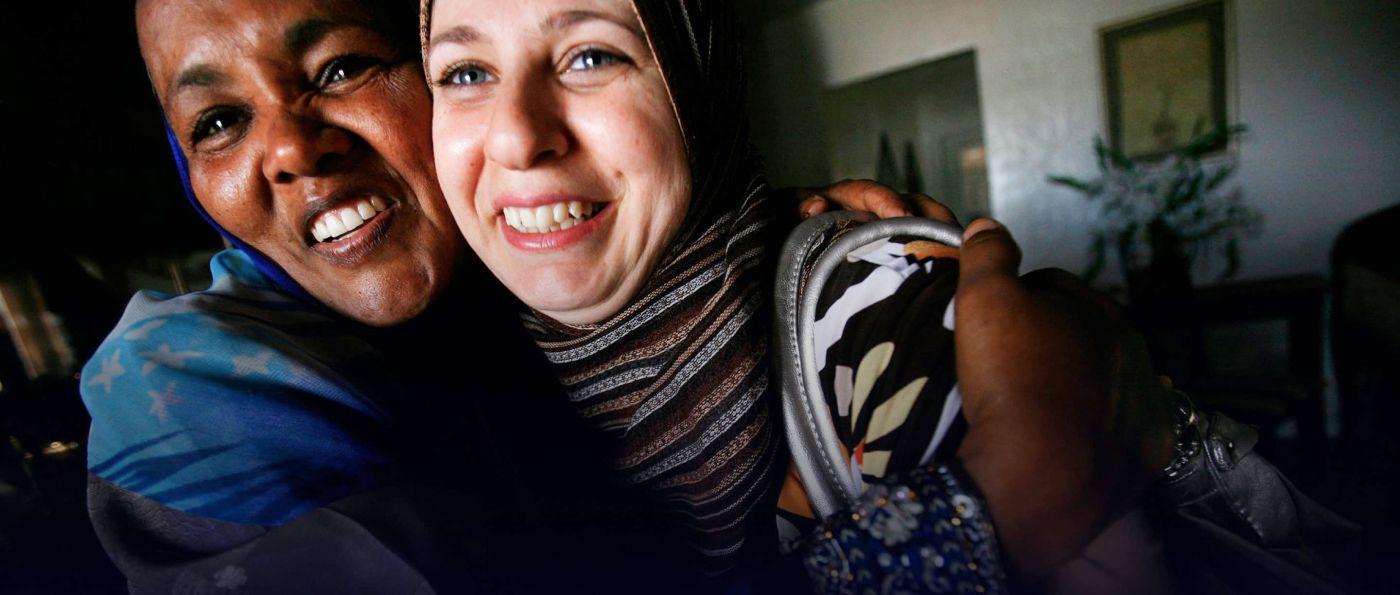
Please note:
The U.S. government has ended the Processes for Cubans, Haitians, Nicaraguans, and Venezuelans (CHNV) and paused the Uniting for Ukraine and Welcome Corps private sponsorship programs. Americans cannot submit new sponsorship applications, and existing applications will not be processed. As of Jan. 31, 2025, reports suggest that President Trump’s administration may soon announce the immediate termination of existing humanitarian parole for newcomers who entered the U.S. through CHNV and U4U.
- Learn more about how this impacts newcomers and sponsors.
- Sign up for ongoing policy updates from Welcome.US.
Top FAQs
What’s the latest on U4U?
As of Jan. 28, 2025, the U.S. government has paused the Uniting for Ukraine (U4U) program. No new U4U applications are being accepted, pending cases won’t be processed, and no new travel authorizations are being issued.
In Aug. 2025, U.S. Citizenship and Immigration Services (USCIS) resumed processing U4U renewal (re-parole) applications for Ukrainians who are here in the U.S. Ukrainian newcomers who have already arrived in the U.S. via U4U may be eligible for re-parole. However, the pause on new U4U applications for Ukrainians outside of the U.S. is still in place. For more information, see this guidance by the Ukraine Immigration Task Force on how to submit a re-parole application and when to consider expedited processing.
If your U4U beneficiary is still awaiting a renewal for parole or work authorization, we encourage you to contact your congressional representative and submit a constituency request for their staff to file a congressional inquiry to USCIS checking on the status of their case. You can reference our contact your representative guide to learn how to submit this request.
To understand eligibility for alternative legal status options, check out our guide to alternative legal options for humanitarian parolees and seek legal advice from an immigration attorney.
Does the end of the CHNV program and pause to the U4U program mean the newcomer I sponsored lost their humanitarian parole status?
The DHS announced that it will terminate the humanitarian parole status for individuals who arrived in the U.S. through the CHNV program. Termination of parole will take effect 30 days after the official notice is published. The expected publication date of the notice is March 25, 2025, meaning parole would be terminated on April 24, 2025. Additionally, if an individual's parole is set to expire earlier, termination would occur on the expiration date. DHS intends to prioritize removing individuals from the U.S. who haven’t applied for another status, like TPS or asylum, by March 25, 2025. View our CHNV policy explainer page for more information and resources.
This order of termination is specific to individuals who were sponsored through the CHNV sponsorship program. It does not apply to individuals who arrived in the U.S. through U4U, however recent reports suggest the government may also terminate humanitarian parole status for this population. Individuals who arrived through U4U and do not have another status or a pending application for another status, such as TPS or asylum, should seek professional legal counsel and apply for alternative legal status, if eligible. Learn more about applying for another status in our guide to alternative legal options for humanitarian parolees.
Will a newcomer be protected if they apply for an alternative legal status after their humanitarian parole status is terminated?
Media reports indicate that on Feb. 14, DHS issued an internal memo suspending decision-making on all immigration applications filed by individuals who arrived in the U.S. through several sponsorship programs, including U4U and CHNV. The directive indicates that U.S. Citizenship and Immigration Services (USCIS) will not approve any alternative forms of legal status many sponsored individuals are seeking while this pause is in place. This includes applications filed for asylum, TPS, Employment Authorization Documents (EADs), advance parole travel, adjustment of status to permanent residence, naturalization, and all other applications filed to USCIS.
The memo has not been made public, and many questions remain, including if it will be challenged in court. We continue to strongly recommend that sponsored newcomers apply for alternative legal status, including asylum, if eligible, based on guidance from legal experts. Sponsors can help by connecting newcomers with legal services. Check out our guide to alternative legal options for support. We will continue to monitor policy changes and share updated recommendations as they impact sponsorship programs.

